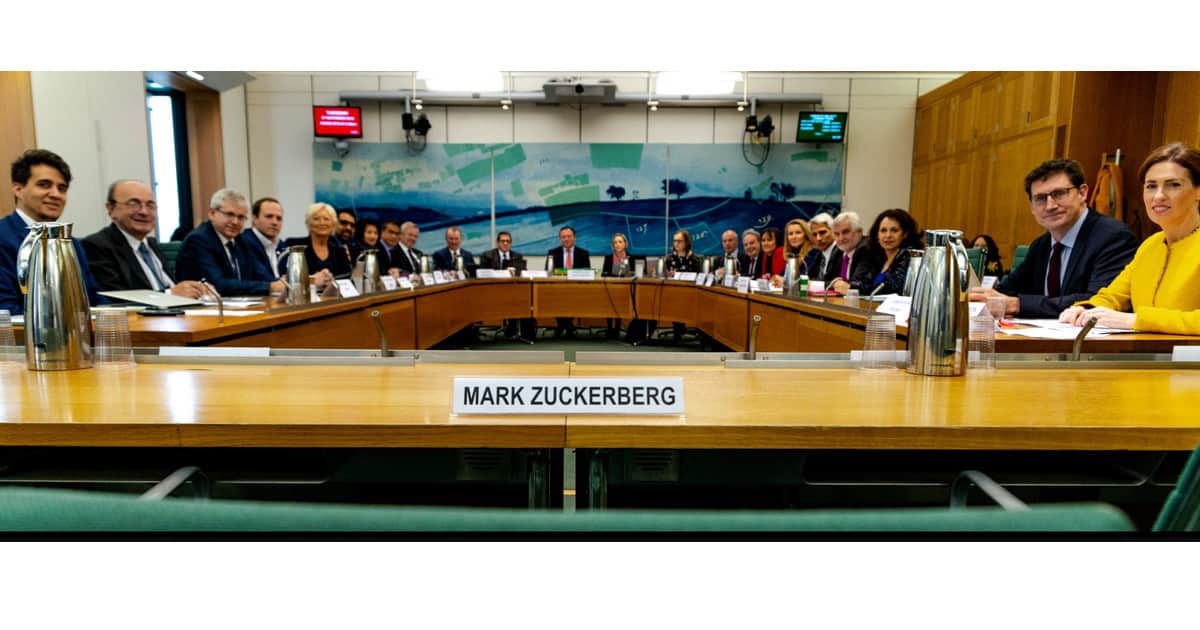A server found without a password contained over 419 million database records of Facebook users in the U.S., U.K. and Vietnam.
A U.S. Senator Suggests Prison Time for Mark Zuckerberg
In an interview, U.S. Senator Ron Wyden said that Facebook CEO Mark Zuckerberg should be imprisoned for Facebook’s privacy scandals.
Tumblr vs Facebook, Naming iPhones – TMO Daily Observations 2019-08-15
John Martellaro and Charlotte Henry join host Kelly Guimont to discuss Tumblr (under Automattic) taking on Facebook, and iPhone nomenclature.
Facebook's Digital Currency, Libra, in Trouble
The pushback against Libra is increasing. BBC News writes:
Financial bigwigs are upset because Facebook, a corporation, appears to want to take on a government-like role, creating a currency and perhaps even setting monetary policy.
Big Money is power. Facebook is trying to seize power at a governmental level. Sparks are gonna fly.
Facebook Contractors Listened to User Audio Too
Amazon, Apple, and Google listened to user audio files to help analyze the data. Now we have news that Facebook contractors did the same.
iOS 13 VoIP Rules Affects Facebook and Other Apps
New iOS 13 VoIP rules will affect how WhatsApp, Facebook Messenger, and other messaging apps work to protect customer privacy.
Facebook Rebrands Instagram and WhatsApp
Mad over Facebook’s terrible reputation, Mark Zuckerberg wants to rebrand Instagram and WhatsApp to make it clear who owns them.
Websites Using Facebook Like Buttons Liable for Data Collection
The Court of Justice of the European Union (ECJ) ruled that websites that use Facebook’s ‘like’ button can be held liable for data collection.
Facebook Plans Don't Include End-to-End Encryption
Unsurprisingly, Facebook’s messaging apps won’t have true end-to-end encryption, with messages scanned before being encrypted.
In Facebook’s vision, the actual end-to-end encryption client itself such as WhatsApp will include embedded content moderation and blacklist filtering algorithms. These algorithms will be continually updated from a central cloud service, but will run locally on the user’s device, scanning each cleartext message before it is sent and each encrypted message after it is decrypted.
The company even noted that when it detects violations it will need to quietly stream a copy of the formerly encrypted content back to its central servers to analyze further, even if the user objects, acting as true wiretapping service.
Unlike Forbes‘ clickbait headline, the “encryption debate” certainly isn’t over or dead. Now it’s about trying to convince the government that encryption backdoors don’t work. There are also plenty of Facebook alternatives.
Now That it Fined Facebook, FTC Sues Cambridge Analytica
The Federal Trade Commission (FTC) is suing now-bankrupt Cambridge Analytica for its role in collecting user data for voter targeting.
The torrent of privacy settlements, data scandals, and regulatory concerns over its handling of user information, however, has done nothing to hurt its financial prospects, at least yet. It’s business as usual for Facebook…But regulatory troubles are far from over for Facebook, what with the tech giant coming under fresh scrutiny from the FTC for possible violation of US antitrust law.
Libra 'Open to Massive Fraud' Warns Senior UK Politician
Senior UK politician Damian Collins MP said the Libra digital currency suggests Facebook is “trying to turn itself into its own country.”
UK Politicians Demand Answers on Facebook's Contradictory Evidence
Senior UK politicians accused Facebook of contradicting its own evidence about platform policy violations and demanded clarification.
Democrats Draft Bill to Get Big Tech Out of Finance
The Democratic majority on the House Financial Services Committee unveiled a Bill aimed at getting big tech firms out of finance.
Federal Reserve Chairman Says Facebook Libra "Cannot go Forward"
U.S. Federal Reserve Chairman Jerome Powell said on Wednesday that Facebook Libra “cannot go forward” until serious concerns are addressed.
“Libra raises many serious concerns regarding privacy, money laundering, consumer protection and financial stability,” Powell said during his semi-annual testimony on monetary policy before the U.S. House of Representatives Financial Services Committee.
“I don’t think the project can go forward” without addressing those concerns, he added later.
Being pessimistic, I wonder if they are genuinely concerned about things like privacy, or just don’t want the competition.
House Democrats Ask Facebook to Stop Libra Cryptocurrency
A group of Democrats on the House Financial Services Committee wrote a letter asking Facebook to stop its Libra cryptocurrency plans.
Facebook VP Nick Clegg Makes a Compelling Pro-Apple Argument
Facebook VP Nick Clegg makes the same argument as Sundar Pichai when it comes to Apple. Although he thinks he’s making an argument against Apple, he’s really arguing for Apple.
Facebook is free — it’s for everyone. Some other big tech companies make their money by selling expensive hardware or subscription services, or in some cases both, to consumers in developed, wealthier economies. They are an exclusive club, available only to aspirant consumers with the means to buy high-value hardware and services.
Facebook is free only because they sell advertising using customer data. Apple makes money from hardware and subscriptions. It’s precisely because of companies like Facebook and Google that privacy is seen as a luxury.
Facebook Marketing Agency xSocialMedia Leaks Medical Data
xSocialMedia, a marketing agency on Facebook that runs campaigns for medical malpractice lawsuits, has leaked medical and other data for about 150,000 people.
vpnMentor notes that xSocialMedia might not be subject to HIPAA compliance because patients are free to disclose their health information to the parties of their choice – in this case, by inputting it into a form on one of the advertising firm’s sites.
vpnMentor says it discovered the leak on 2 June. xSocialMedia responded on 11 June and closed the database up on the same day.
What a nice bit of information to wake up to.
Libra: Finally, a Way for Facebook to Control More, with Andrew Orr - ACM 516
Bryan Chaffin and Andrew Orr dig deep into the possibilities—for good and ill (mostly ill)—of Facebook’s new Libra cryptocurrency. They cover how it work, why Facebook went the cryptocurrency route, and what Facebook has to gain from the project. Spoiler, the answer is everything!
Fake App Sales, Cryptocurrency From Facebook – TMO Daily Observations 2019-06-18
Bryan Chaffin and Andrew Orr join host Kelly Guimont to discuss iOS apps running “limited” sales, and Facebook getting into cryptocurrency.
Facebook's Cryptocurrency Has Big Backers
Facebook is preparing to launch a new cryptocurrency. The Wall Street Journal found that the project has backing from some of the biggest names in finance and e-commerce.
Facebook Inc. has signed up more than a dozen companies including Visa Inc., Mastercard Inc., MA +0.20% PayPal Holdings Inc., and Uber Technologies Inc. to back a new cryptocurrency it plans to unveil next week and launch next year. The financial and e-commerce companies, venture capitalists and telecommunications firms will invest around $10 million each in a consortium that will govern the digital coin, called Libra, according to people familiar with the matter. The money would be used to fund the creation of the coin, which will be pegged to a basket of government-issued currencies to avoid the wild swings that have dogged other cryptocurrencies, they said.
GCHQ Officials' Encryption-Bypassing Idea Criticised in Letter Signed by Apple
Apple, Google, Microsoft, and WhatsApp signed an open letter criticizing proposals to bypass encryption made by GCHQ officials.
GDPR: Nearly 90,000 Data Breach Notifications in First Year
There were 89,271 data breach notifications in the first year of GDPR being in place, with fines issued totaling €56 million.
Facebook Banned Over 2 billion Fake Accounts in Q1 2019
Facebook banned 2.19 billion fake accounts in the first quarter of 2019 – that is the equivalent of its entire existing userbase.
G Suite Passwords Stored in Plaintext Since 2005
Google has stored passwords to some G Suite enterprise accounts in plaintext, since 2005, the company has admitted.
















